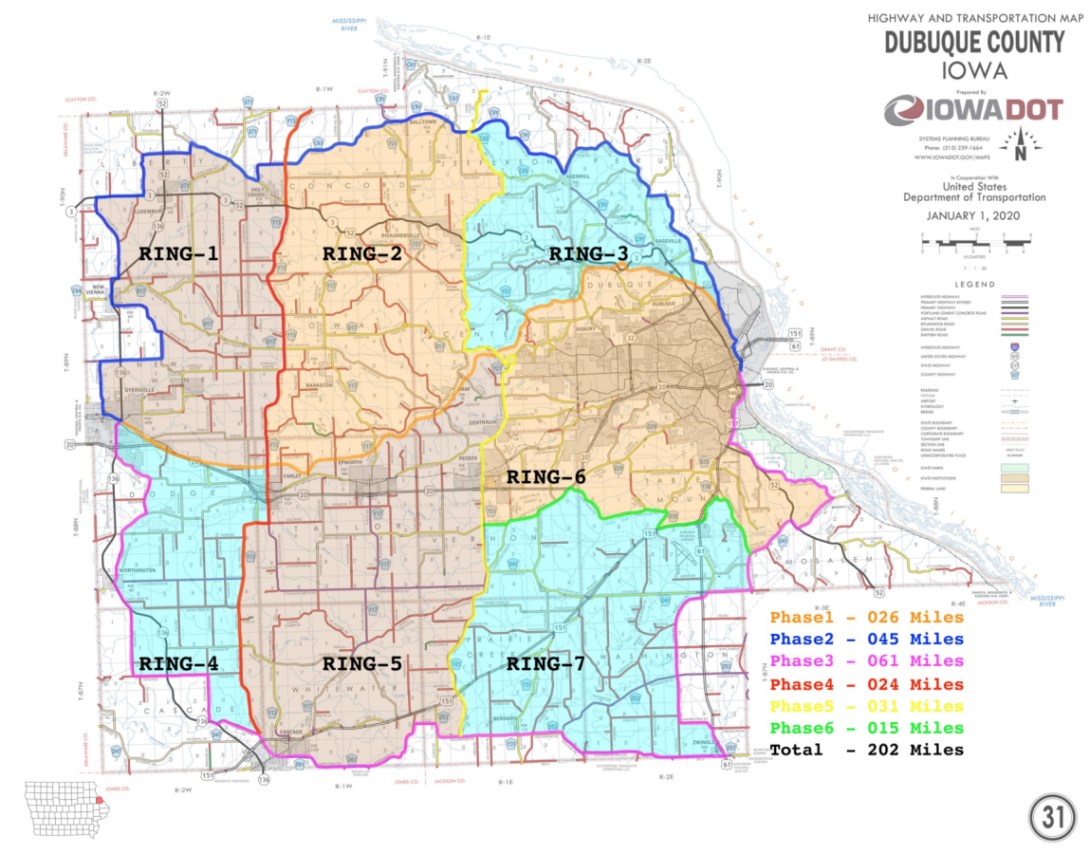
Located in southeastern Iowa, Dubuque (pop. 60,000) has considered the advantages of building a municipal network a number of times over the past fifteen years. Back in 2005, the city – as well as several other Iowa communities – voted to “grant the right to create municipal systems” (Telegraph Herald, 2009). The new legislation, however, did not result in many new telecommunications utilities.
The road to better connectivity has been a long one, marked by repeated battles between locals served by poor or no service and the city’s incumbent providers. In 2009, Mediacom used the state’s right of first refusal law to keep competition out of its territory, causing the city to “cry foul” and Dubuque to reconsider a public network. In 2015, the city of Dubuque and the Greater Dubuque Development Corporation joined forces to expand local connectivity in response to community demand. The partnership included convening private and public sectors to identify last mile infrastructure and foster collaboration, and supporting opportunities for expanded connectivity. By 2017, private providers including Wisconsin Independent Network, CS Technologies, Unite Private Networks, CenturyLink, and Mediacom had made efforts to serve some of the unserved areas, but pockets of the community were still left out.
Only more recently has a formal proposal been set forth, with the potential to create a robust middle-mile network designed to dramatically improve competition and incent private ISPs to invest in the un- and underserved pockets of the community.
A Formal Proposal for Public Broadband Infrastructure
It’s been a long conversation with no definitive moves, but that may be changing soon. In February, 2022, Dubuque County’s Information Technology Department proposed a middle-mile underground conduit buildout to connect residents and anchor institutions across the county. The conduit, which would be leasable to partners, institutions, and Internet Service Providers (ISPs) is expected to increase competition and make broadband access more equitable. The public infrastructure would lower barriers to entry for providers in these pockets.

The proposal sets up a series of seven interlocking fiber rings, totalling 202 miles if all completed. The Phase 1 proposed pathway for the conduit is the Heritage Trail, a 26-mile long former railroad corridor which runs east-west through Dubuque county and comprises a portion of six out the seven proposed fiber rings. The trail offers an especially appealing building environment, as very little construction runs along it today. Dubuque’s IT Director Nathan Gilmore identified the stretch as “an ideal path for conduit.”
The Heritage Trail stretch is estimated to cost around $3 million. The proposed plan would leverage American Rescue Plan dollars and potentially other state and federal grants including the Infrastructure Investment and Jobs Act, which sets aside a funding pool for county-level middle-mile infrastructure. The project may also lean on “potential partnerships with local governments, school districts or employers.” By one model, the Heritage Trail stretch could return $686,000 per lease (20 years at $5 per foot).
The proposed project has received some feedback from a few members of Dubuque county’s board of supervisors, who will choose from a number of proposed uses of the county’s total $19.4 million ARPA allocation. One supervisor ranked the project highly relative to other ARPA funding uses, one suggested an alternate corridor for buildout, and another was interested in seeing the buildout happen initially as a pilot. The board will decide on the project sometime over the next few months.
So far we haven’t encountered any discussion of additional moves to incentivize new last-mile construction, which is the most expensive part of connecting residents. But Dubuque faces real connectivity challenges in many areas of the city, which means it’s a market with demand that’s ripe for more investment.
Dubuque is not the first community in Iowa to consider rolling out publicly-owned conduit. The City of West Des Moines is currently in the process of building its own open-access conduit network. Indianola and Coon Rapids also offer their own municipal fiber broadband services.
To learn about more community broadband projects leveraging American Rescue Plan funding, check out Our Big List of American Rescue Plan Community Broadband Projects.






